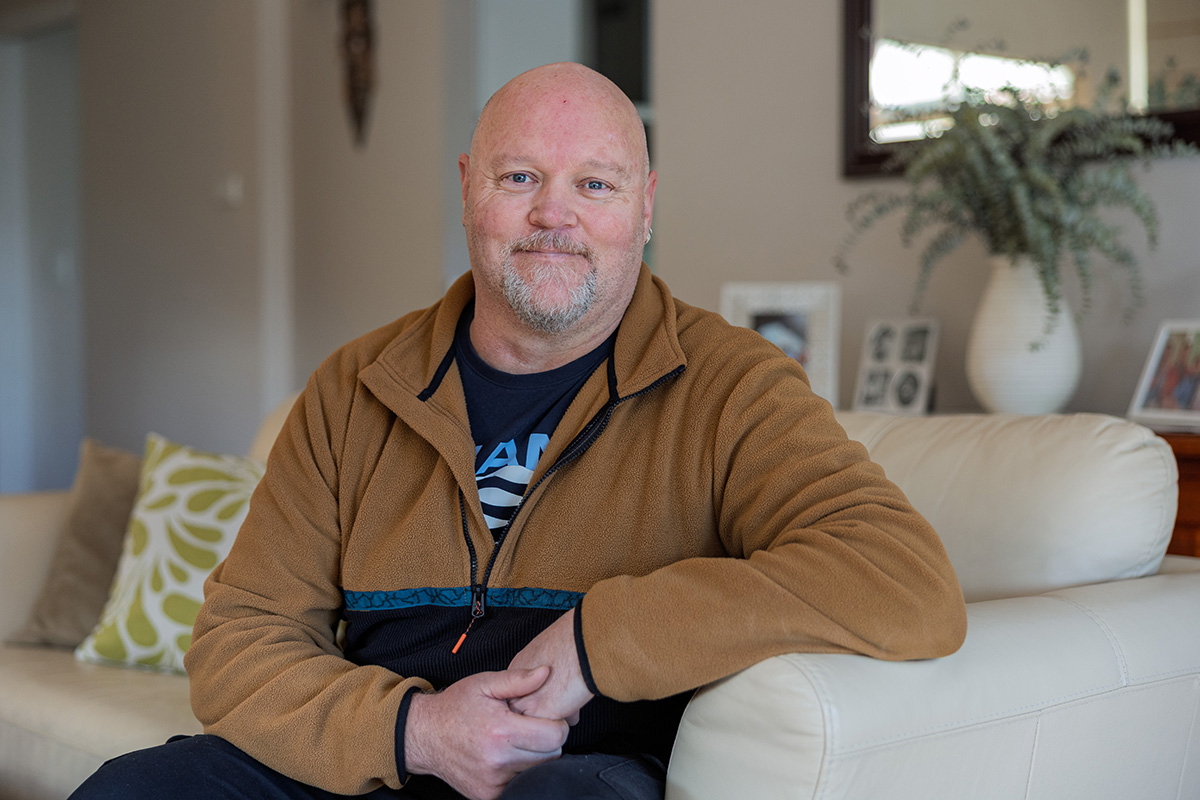By Raia Flinos
MOUNT Martha local, Lincoln Cole, found relief after years of chronic pain thanks to a locally designed technology implanted in his spine. After a workplace accident in 2013 left him with chronic, debilitating pain, Lincoln’s world shrunk. Before the accident, Lincoln lived an active lifestyle and loved surfing and riding horses. He quickly found himself housebound, depressed, and dependent on strong painkillers. Even standing upright became a struggle.|
“I went from being capable and doing pretty much whatever I wanted to doing nothing,” he said. “[The chronic pain] is constant. It’s 24 hours a day. It doesn’t go away even when you’re asleep. It doesn’t go away and it’s debilitating physically and mentally and emotionally.” On good days, he could manage a one-kilometre walk. On most days, he could barely move.
“I thought I’d never get back to work again. I was having painkillers pretty much every day and strong painkillers and I thought yeah, I’ll never surf again. I’ll never ride horses again. I’ll never ride a motorbike. I’ll never do anything like that again,” Lincoln said. He tried various treatments and had multiple surgeries and injections to try and lessen the pain but found no lasting relief.
That changed last November when Lincoln underwent surgery to receive the Saluda Evoke Spinal Cord Stimulation (SCS) system, an Australian-designed implant that transformed his life. The device, created by Saluda Medical, sends electrical pulses to the spinal cord to interrupt pain signals before they reach the brain. The device automatically adjusts over four million times a day to deliver constant, real-time pain relief.
“I was all for it. I’d tried everything else,” Lincoln said. “I feel like I tried my hardest with everything I could but could never quite get to where I felt was a satisfactory point in my life until I had this this operation done.”
The results were immediate. “Once I get over the initial surgery I could walk a lot more. I didn’t have any trouble standing up straight,” he said. “I went from not being able to walk at all, I couldn’t stand up straight and was using a walking stick some days, to being able to walk 5kms really quick.”
For Lincoln, who previously feared he would never be able to work again or return to the activities he loved, the change has been profound. “I haven’t touched a painkiller since I recovered from the surgery. I’m back at work four days a week and I walk my dog every day, up to six kilometres, completely pain free. Something I never thought possible,” he said.
Lincoln charges the device wirelessly for twenty minutes a day, usually while he watches TV, a small trade-off for the freedom he has received. The mental shift, however, took a little longer.
Lincoln said he was “cautious but hopeful” after the surgery. “I think I still had a fear that something would go wrong with it,” he said. As each day passed and he found himself able to move more and more without pain, his hesitancy lessened and now, Lincoln has complete trust in the device. He said his mental health had been constantly improving since the surgery.
Support played a big role in getting Lincoln to where he is now. “I did seek people to talk to which was a big help,” he said. Lincoln emphasised how difficult it can be when medical professionals minimise the effects of chronic pain. “I’ve come across medical professionals where they seem to have the attitude of ‘oh well suck it up and deal with it. Go back to work,’ and it’s not as simple as that,” he said.
Chronic pain affects one in five Australians and yet access to effective treatment remains dangerously low. Many find themselves trapped in a cycle of misdiagnosis and failed treatments while their mental health and relationships around them deteriorate.
Saluda Medical’s device is reshaping the future of pain management and is changing thousands of lives, including Lincoln’s. “There is always a potential way to improve,” Lincoln said. “You just have to find the way to do it that is going to work for you.” For him, relief came in the form of a tiny implant, resulting in a future he never thought he would experience.
First published in the Mornington News – 22 July 2025


